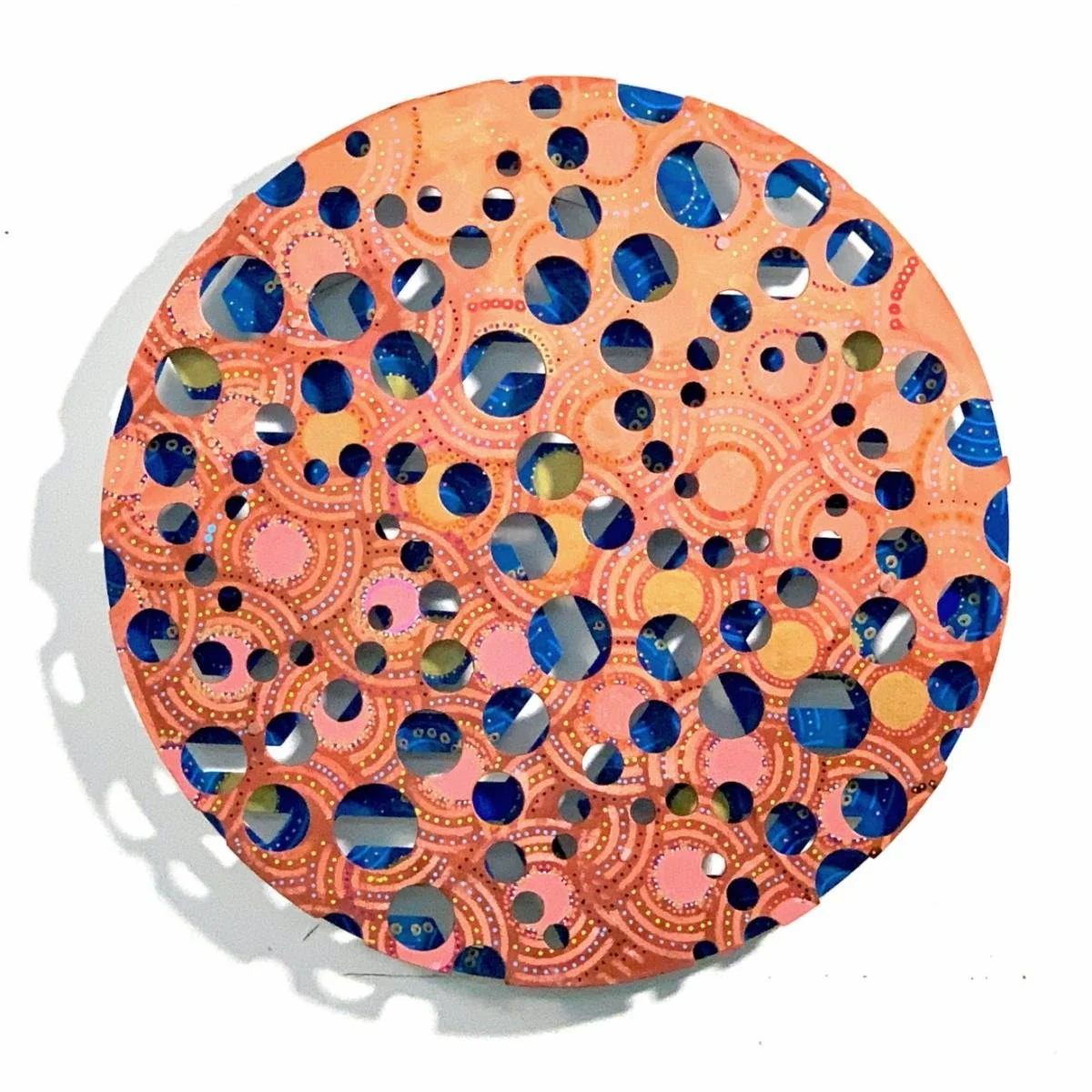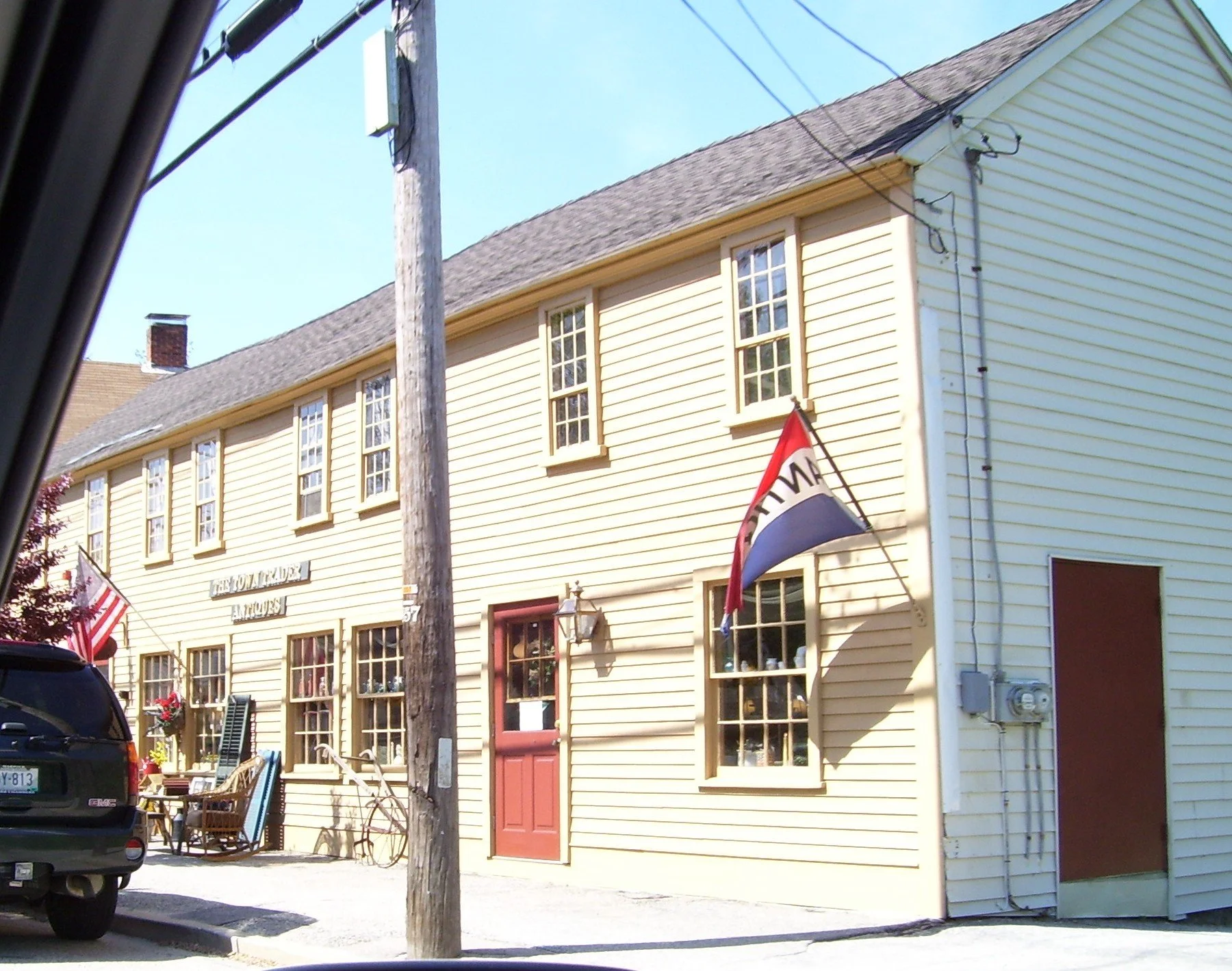
More than random
“Random Order” (acrylic paint on aluminum), by Ed Andrews, in his show “Transplant,’’ at Boston Sculptors Gallery, through Oct. 31.
The gallery says:
“Andrew's battles with leukemia, with the environment, with movement are defined against a traditional dictionary definition and crafted into sculptures of bronze, aluminum and stainless steel. The process is meticulous and intricate — cutting the metal into shapes, and hand painting and etching the material with acid to create his haunting patterns.’’
Mr. Andrews, a native of the Midwest., now lives in the semi-rural town of Glocester, R.I.
Antique store in the Glocester village of Chepachet, a farming community into the 20th Century
— Photo by Swampyank
Invasive species and surveillance
From Ed Andrews's show "Invasive Species,'' at Boston Sculptors Gallery, Nov. 8 through Nov. 10. The gallery says: "Monumental arboreal structures support rice paper cocoons that seem to breathe in and out, while small bug-like drones buzz overhead, appearing to monitor the movement of unsuspecting viewers. The effect is at once visually seductive, poetic and deeply disconcerting.''
The gallery says that Andrews's family lost 12 American Elms that shaded their home because of the invasive Dutch Elm disease, which came from Europe. "Today he manages 35 acres of woodland {in Glocester, R.I.} --an extension of his studio and a laboratory for his art practice--where he does his best to contain non-native plants and insects that threaten the eco-system, including an ongoing personal battle with the invasive European Gypsy Moth. These experiences inform Andrews's work, paired with his expressive commentary on the spread of the security and surveillance industry, which like invasive species, can potentially damage the environment, and pose a threat to our shared human economy and well-being.''


